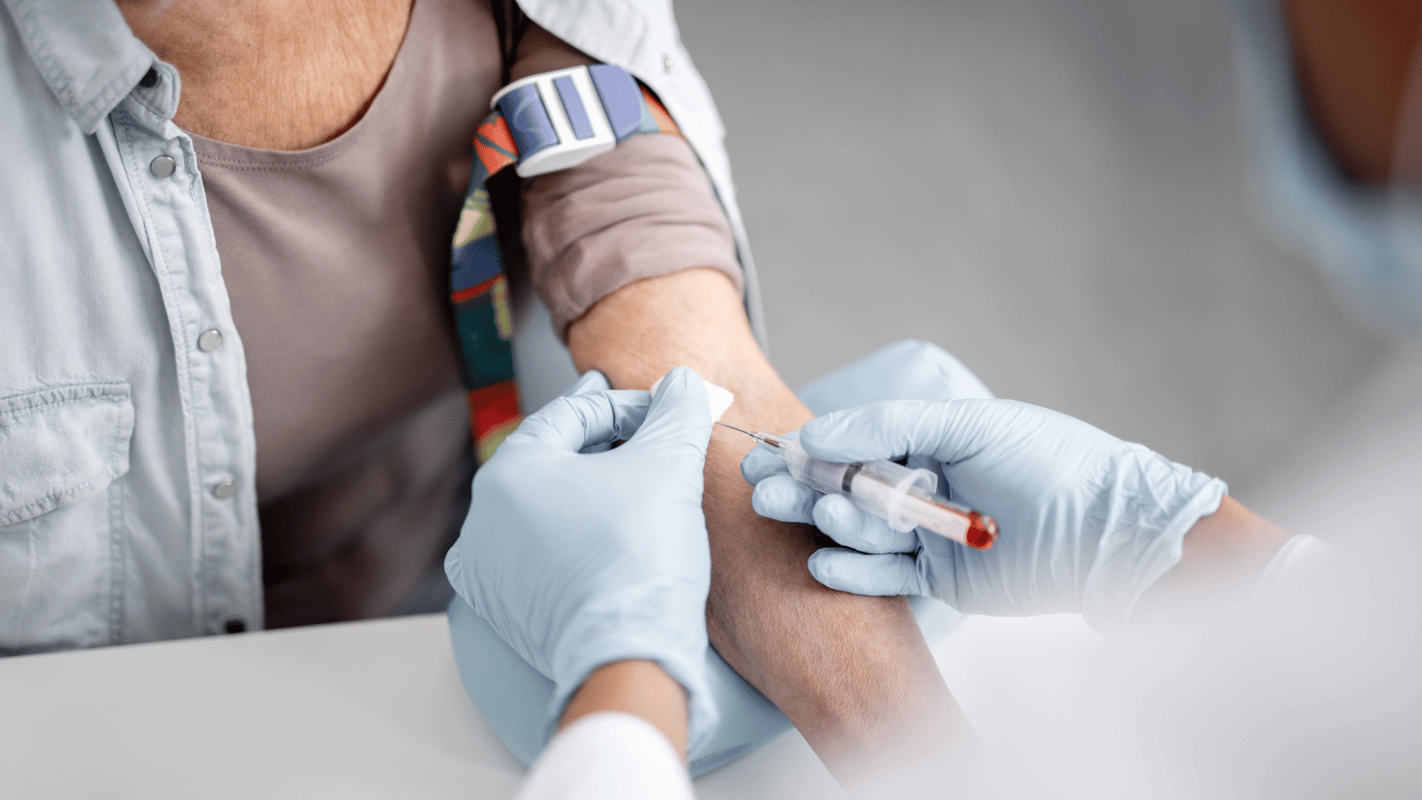How to Become a Phlebotomist in Georgia (2025)

If you're looking for a fast path into Georgia's growing healthcare field, becoming a Phlebotomist offers a direct route to a stable job drawing blood for tests and donations. The state employs over 10,000 of these essential professionals who earn a median salary of $39,800 per year, according to the U.S. Bureau of Labor Statistics. This guide provides the definitive 5-step process to navigate Georgia's training and certification requirements to launch your career in this vital role in just a few weeks.
Key Points
- What is a Phlebotomist? A Phlebotomist is a trained healthcare professional who specializes in drawing blood from patients for diagnostic testing, transfusions, or donations.
- How to become a Phlebotomist in Georgia? To become a Phlebotomist in Georgia, complete a state-recognized or accredited training program (often 4-8 weeks) and pass a national certification exam (like the CPT).
- Length of training for a Phlebotomist: Phlebotomy training programs in Georgia are very fast and can typically be completed in 4 to 8 weeks.
- Average Phlebotomist salary in Georgia: The median salary for a Phlebotomist in Georgia is approximately $39,800 per year.
- Number of employment of Phlebotomists in Georgia: As of May 2024, there were approximately 10,100 Phlebotomists employed in Georgia.
What About Licensing in Georgia?
Georgia does not require a state-specific license for phlebotomists. However, the job market is driven by national standards, and virtually all employers require you to have a national certification (like CPT) from a recognized agency to get hired.
Where can I find Phlebotomy classes in Georgia?
Dreambound is your key to finding the best phlebotomy training in Georgia. As the biggest platform for students looking for vocational training programs, we make it easy for you to find and compare phlebotomy courses.
Our simple search tool lets you find a variety of phlebotomy classes near you in Georgia. You can narrow down your options based on location, course length, and accreditation. Plus, you'll get to meet Skipper, our friendly AI coach! Skipper guides students every day, showing them courses that can lead to their dream jobs.
Ready to start your journey to becoming a phlebotomist in Georgia? Check out Dreambound today.
Career Paths and Opportunities after Becoming a Phlebotomist
As a Phlebotomist, you may have opportunities to advance your career by specializing in areas like donor recruitment, laboratory management, or education. Some Phlebotomists also choose to pursue further education to become medical assistants, nurses, or other healthcare professionals.
The beauty of Phlebotomy? It's a stepping stone to endless healthcare roles. So, if you're ready to try and enter other opportunities, we've got the guides to get you there:
- EKG vs Phlebotomist (2024)
- Licensed Vocational Nurse vs Phlebotomist
- Phlebotomist vs. Medical Assistant
How Much Do Phlebotomists Make in Georgia?
According to the latest U.S. Bureau of Labor Statistics data from May 2024, the median salary for a Phlebotomist in Georgia is $39,800 per year, which breaks down to about $19.13 per hour. Wages can be higher in major metropolitan areas like Atlanta and will increase with experience and additional certifications.
Frequently Asked Questions
How long does it take to be a phlebotomist in Georgia?
Taking a phlebotomy training can range from 4 weeks upwards, based on the type of class you select. You have options like online or in-person, giving you control over your learning. You'll have constant access to all study resources if you pick a self-paced style of learning, ensuring your journey is convenient and flexible.
What is the shortest time to become a phlebotomist?
The shortest time to become a phlebotomist is typically around 4 to 6 weeks. This accelerated path usually involves completing a fast-track phlebotomy training program that includes both classroom instruction and hands-on practice. These programs are designed for those who need to quickly enter the workforce, and they cover essential skills like blood collection techniques, patient interaction, and sample handling. However, the exact duration can vary depending on the training provider and the specific course structure. For more detailed information on fast-track options and availability, check local training programs or online course offerings.
How much does a phlebotomist make in Georgia?
Interested in knowing how much a phlebotomist makes in Georgia? According to the latest figures from May 2023, they take home a solid average annual salary of $41,860. This breaks down to approximately $20.12 per hour. However, remember, this can vary depending on things like where you are, your experience, and any additional skills.
Which state pays phlebotomists the most?
Did you know that California is the place to be for a Phlebotomist? On average, you can make a fantastic $25.18 per hour, which totals up to a yearly salary of $52,370, according to BLS data from May 2023. And the best part? If you have more experience and qualifications, you could earn even more!
Can a phlebotomist give injections in Georgia?
Typically, phlebotomists are not allowed to give injections. Their training and certification mainly focus on drawing blood.
Can you draw blood if you are not certified?
In many states, you don't need to be certified or licensed to take blood samples. However, many employers prefer if you have taken the national exam and have a certificate in phlebotomy.
Final Thoughts
Becoming a Phlebotomist in Georgia can be a rewarding career path, allowing you to play a crucial role in the healthcare system. By completing the necessary education and certification requirements, you can start your journey towards a fulfilling career as a Phlebotomist.
If you're considering a career shift or curious about different professional paths, Dreambound has written many guides to help you in making informed decisions. Here are a few:

Athena is Co-founder and CEO of Dreambound.





